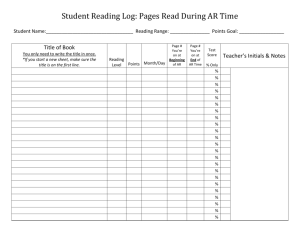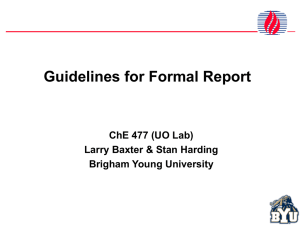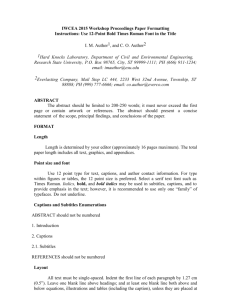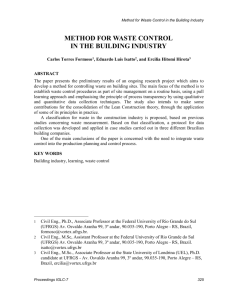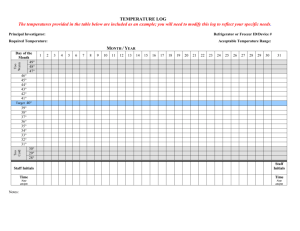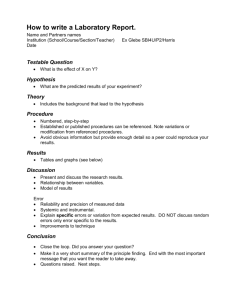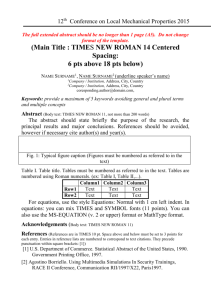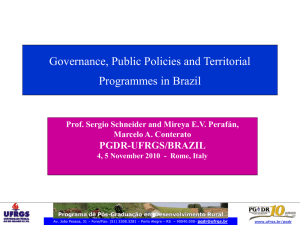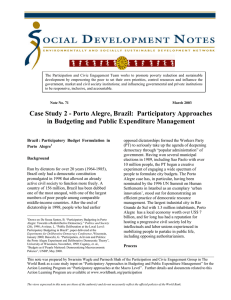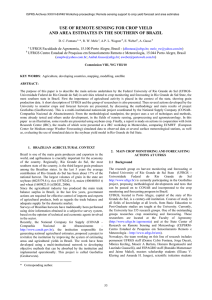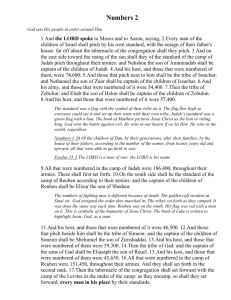2 Structure of the EXTENDED ABSTRACT
advertisement
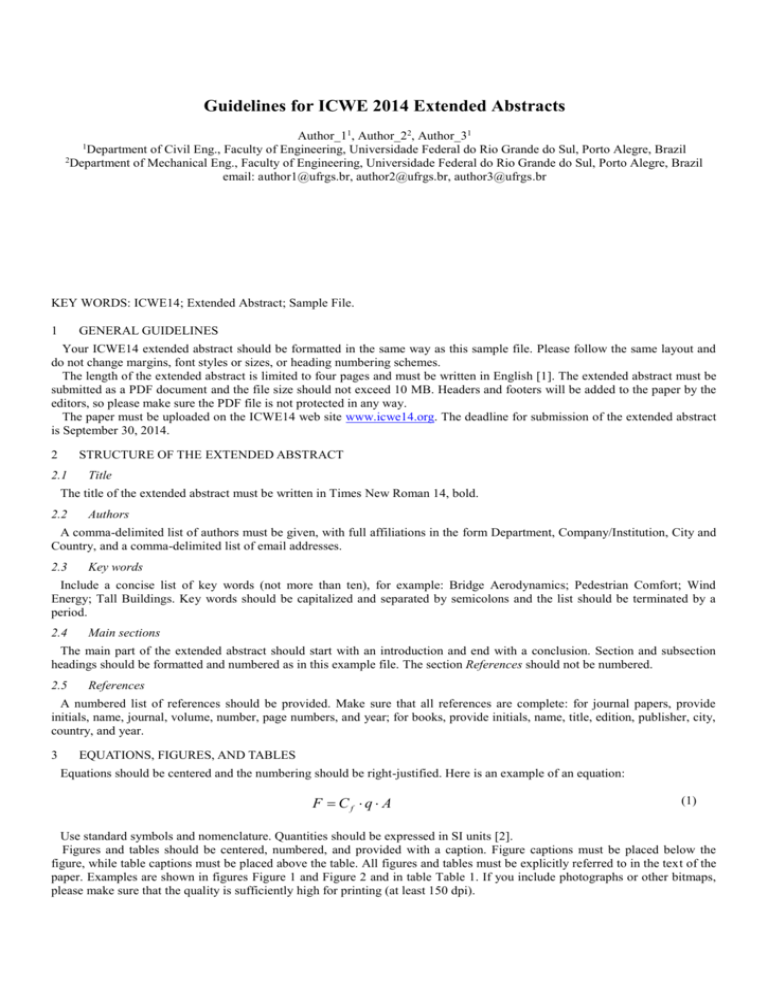
Guidelines for ICWE 2014 Extended Abstracts Author_11, Author_22, Author_31 Department of Civil Eng., Faculty of Engineering, Universidade Federal do Rio Grande do Sul, Porto Alegre, Brazil 2 Department of Mechanical Eng., Faculty of Engineering, Universidade Federal do Rio Grande do Sul, Porto Alegre, Brazil email: author1@ufrgs.br, author2@ufrgs.br, author3@ufrgs.br 1 KEY WORDS: ICWE14; Extended Abstract; Sample File. 1 GENERAL GUIDELINES Your ICWE14 extended abstract should be formatted in the same way as this sample file. Please follow the same layout and do not change margins, font styles or sizes, or heading numbering schemes. The length of the extended abstract is limited to four pages and must be written in English [1]. The extended abstract must be submitted as a PDF document and the file size should not exceed 10 MB. Headers and footers will be added to the paper by the editors, so please make sure the PDF file is not protected in any way. The paper must be uploaded on the ICWE14 web site www.icwe14.org. The deadline for submission of the extended abstract is September 30, 2014. 2 STRUCTURE OF THE EXTENDED ABSTRACT 2.1 Title The title of the extended abstract must be written in Times New Roman 14, bold. 2.2 Authors A comma-delimited list of authors must be given, with full affiliations in the form Department, Company/Institution, City and Country, and a comma-delimited list of email addresses. 2.3 Key words Include a concise list of key words (not more than ten), for example: Bridge Aerodynamics; Pedestrian Comfort; Wind Energy; Tall Buildings. Key words should be capitalized and separated by semicolons and the list should be terminated by a period. 2.4 Main sections The main part of the extended abstract should start with an introduction and end with a conclusion. Section and subsection headings should be formatted and numbered as in this example file. The section References should not be numbered. 2.5 References A numbered list of references should be provided. Make sure that all references are complete: for journal papers, provide initials, name, journal, volume, number, page numbers, and year; for books, provide initials, name, title, edition, publisher, city, country, and year. 3 EQUATIONS, FIGURES, AND TABLES Equations should be centered and the numbering should be right-justified. Here is an example of an equation: F Cf q A (1) Use standard symbols and nomenclature. Quantities should be expressed in SI units [2]. Figures and tables should be centered, numbered, and provided with a caption. Figure captions must be placed below the figure, while table captions must be placed above the table. All figures and tables must be explicitly referred to in the text of the paper. Examples are shown in figures Figure 1 and Figure 2 and in table Table 1. If you include photographs or other bitmaps, please make sure that the quality is sufficiently high for printing (at least 150 dpi). Figure 1. First sample figure. Figure 2. Second sample figure. Table 1. Sample table. Test 1 2 3 4 fx [Hz] 6.83 6.83 6.82 6.83 ζx [%] 1.06 1.08 1.08 1.07 fy [Hz] 6.83 6.83 6.83 6.82 ζy [%] 1.10 1.11 1.09 1.10 REFERENCES [1] [2] J. Simpson and E. Weiner, Eds., The Oxford English dictionary, Clarendon Press, Oxford, UK, second edition, 1989. Bureau International des Poids et Mesures, The international system of units (SI), BIPM, Paris, France, eighth edition, 2006.
